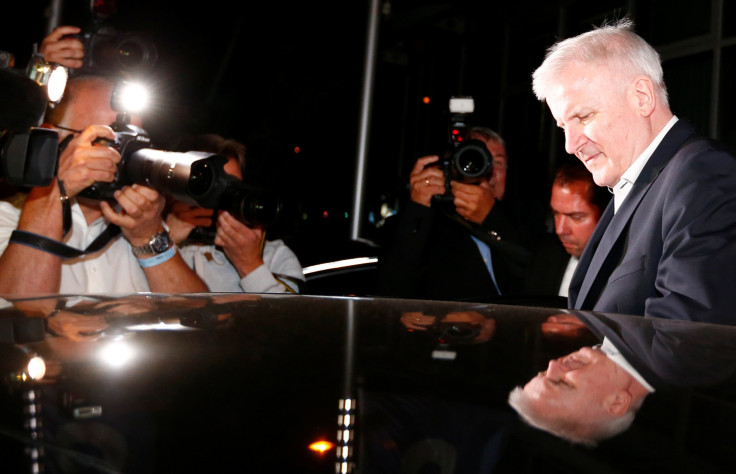German Interior Minister Offers Resignation In Showdown With Angela Merkel Over Migrants

Germany’s interior minister and leader of the Bavarian Christian Social Union (CSU) party Horst Seehofer has offered to resign over Angela Merkel’s EU deal with regard to tackling immigration, reports said Monday.
In a closed-door meeting Sunday night, Seehofer offered to step down from both his ministerial role and leadership position from the CSU, a key party in Merkel’s ruling coalition.
Late Sunday saw Merkel’s party, the Christian Democratic Union, pass a resolution supporting the German Chancellor’s position on immigration. The party held that a European solution was necessary, CDU General Secretary Annegret Kramp-Karrenbauer said, the BBC reported.
Seehofer had last week threatened turning asylum seekers away from Germany’s borders unless Merkel reached an acceptable deal among EU partners.
Merkel had met with Seehofer on Saturday and she had sounded optimistic about the meeting when she told broadcaster ZDF she had made concessions to him and felt hopeful about CDU and its sister party the CSU continuing working together "because we are a success story for Germany."
However, come Sunday, Seehofer claimed their talk was a "conversation with no effect" and he sought to step down as he enjoyed “no support” sources said, the BBC reported.
According to reports, CSU leaders had tried to talk Seehofer into staying during Sunday night’s closed-door meeting and a press conference was postponed to Monday.
A statement emerged at 2 a.m. local time (8 p.m. EDT Sunday), via a media conference where Seehofer said he had agreed to meet with Merkel one more time before he makes his final decision. “We’ll have more talks today with the CDU in Berlin with the hope that we can come to an agreement,” Seehofer said, the Guardian reported. “After that, then we will see.”
Merkel met with leaders of her party in Berlin too, and described the situation to colleagues as “very serious.” Essentially, Seehofer’s offer to step down is to avoid splitting the conservative alliance.
According to Politico, many within the CSU shared Merkel’s view that progress made during last week’s EU summit with regard to the refugee crisis was substantial and a breakthrough. However, Seehofer said in Sunday’s meeting it would result in little difference on the ground.
The tension between the two had been building up over the last month, with Seehofer agreeing to give Merkel until the EU summit to come up with an acceptable solution. He wanted refugees to be turned away at Germany’s borders had they been previously registered in another EU country. She was certain she didn’t support such a measure as it would further undermine Europe’s solidarity and freedom of movement within the continent. The CSU is thought to see Merkel as rather centrist.
Last week’s summit produced some kind of inexplicit deal with an unspecified promise that more EU countries would open voluntary “control centers” in order to process asylum claims, although, the Guardian reported that Austria, France, Germany and Italy, had no immediate intention to do so.
Commenting on the possibility of his country opening a center, Austrian Prime Minister Sebastian Kurz said: “Of course not … we are not a first-arrival country, unless people jump with parachutes.”
Merkel said it was “a step in the right direction” for Europe.
© Copyright IBTimes 2025. All rights reserved.






















